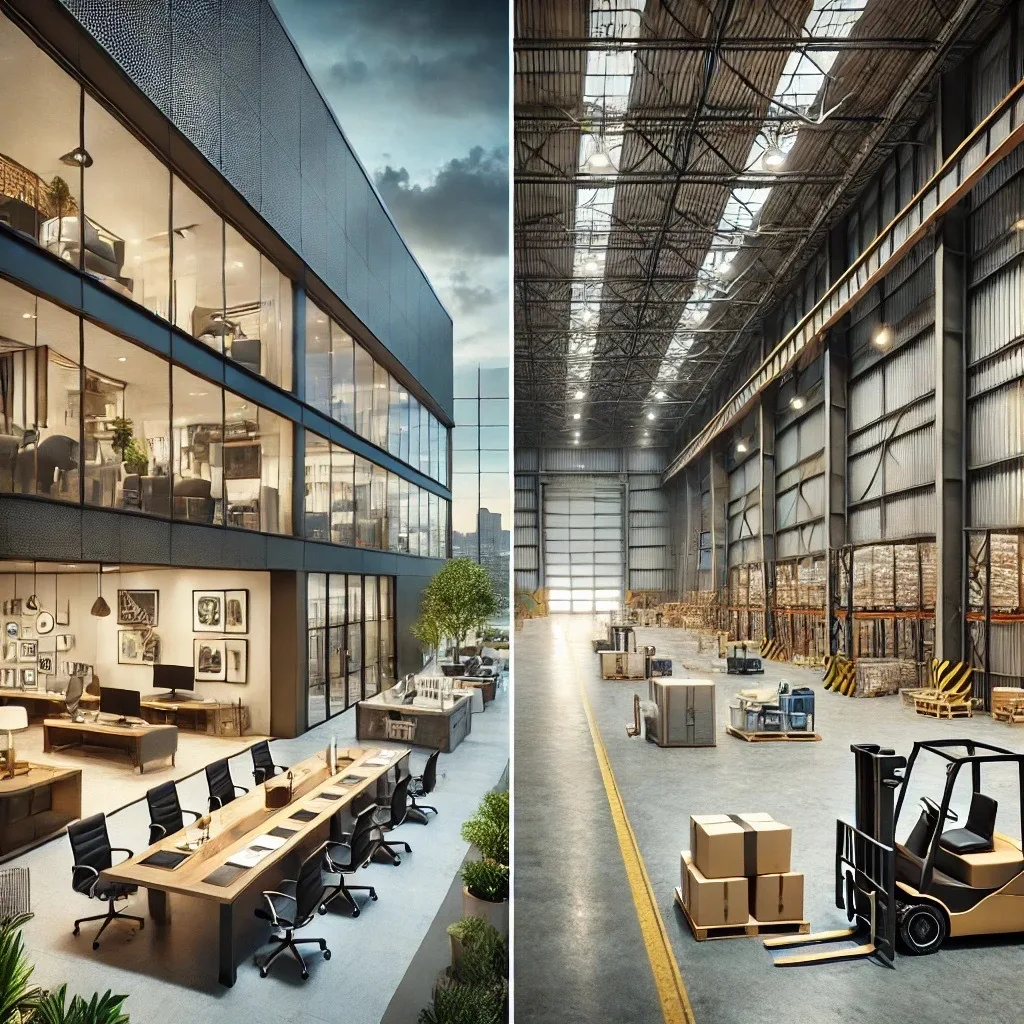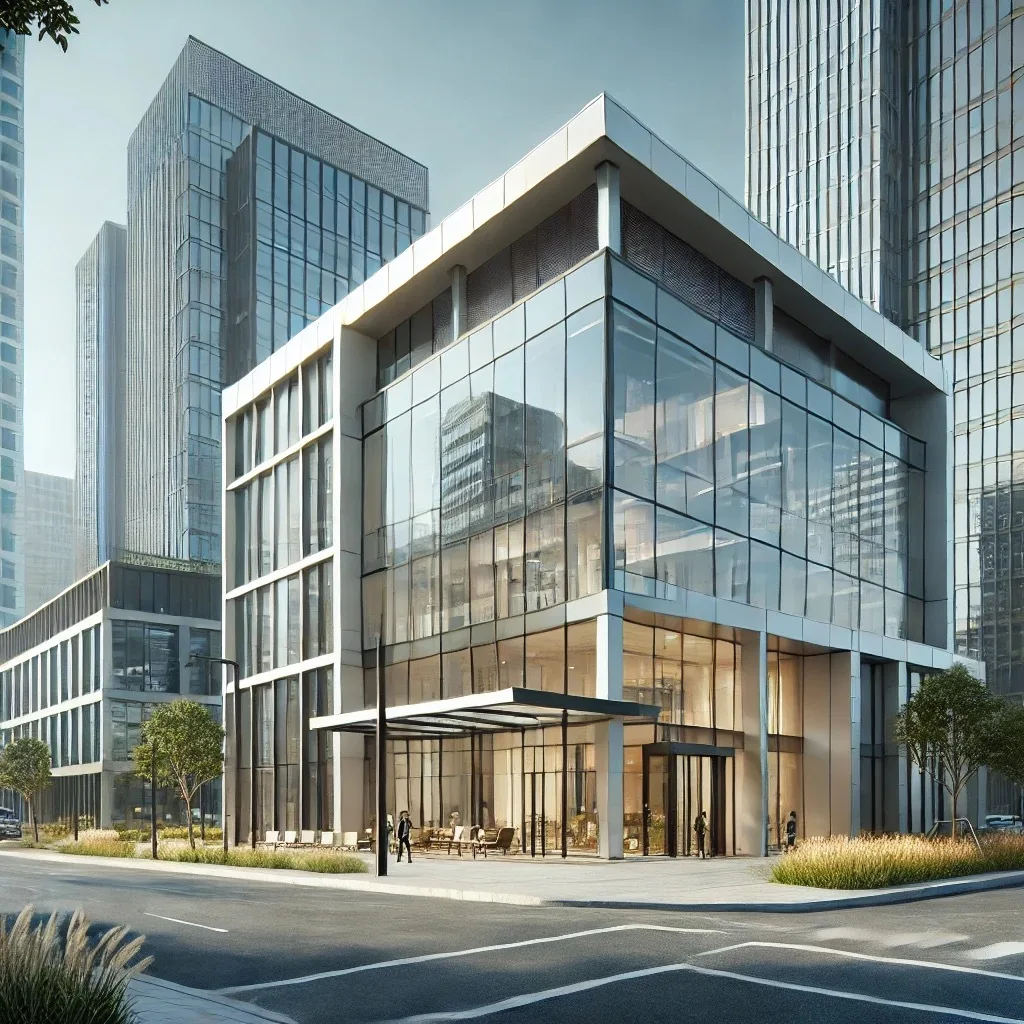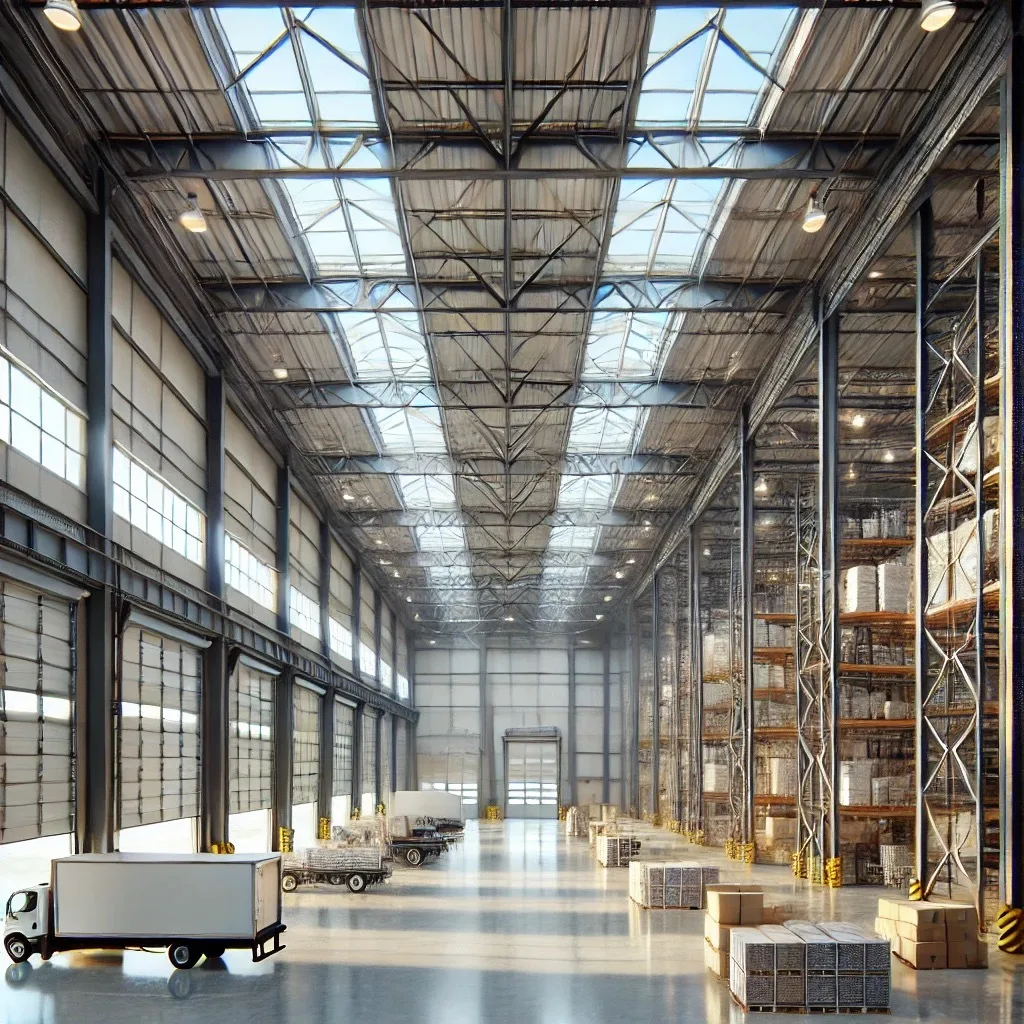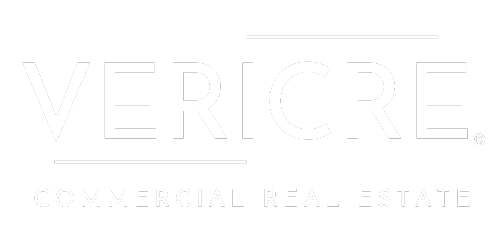
Purpose and Function:
- Commercial Office Lease: Tailored for businesses needing professional office space for administrative tasks, client meetings, and collaboration. These spaces prioritize accessibility, aesthetics, and amenities that foster a corporate environment.
- Industrial Lease: Designed for manufacturing, distribution, or warehousing businesses. Industrial leases emphasize practicality and functionality, with features like high ceilings, loading docks, and ample floor space to accommodate machinery and storage needs.
Property Characteristics:
- Commercial Office Lease: Typically located in centralized areas, these properties feature modern infrastructure, ample parking, and well-maintained common areas. Layouts often include private offices, conference rooms, and communal spaces.
- Industrial Lease: Situated near transportation hubs and major highways, industrial properties focus on functionality with large open floor plans, heavy-duty flooring, and specialized utilities (e.g., three-phase power) to support industrial operations.

Lease Terms and Flexibility:
- Commercial Office Lease: Office leases usually have longer terms and may offer options for customization or expansion. Landlords often provide services like janitorial, security, and maintenance as part of the lease.
- Industrial Lease: These leases often offer more flexibility in terms of duration and space modifications. Tenants may be responsible for maintaining specialized equipment and utilities to suit their operational needs.
Cost Considerations:
- Commercial Office Lease: Office leases typically command higher base rents due to prime locations and added amenities. Tenants may also incur costs for utilities, common area maintenance (CAM) fees, and property taxes.
- Industrial Lease: Industrial spaces may be more cost-effective per square foot, particularly in industrial parks or outskirts of urban areas. However, tenants might face additional expenses for utilities, maintenance, and regulatory compliance.
Regulatory Compliance:
- Commercial Office Lease: Compliance focuses on zoning regulations, building codes, and accessibility requirements. Landlords often manage many compliance aspects, but tenants must ensure their operations meet regulatory standards.
- Industrial Lease: These leases require adherence to a wider array of regulations, including environmental, safety, and zoning ordinances. Tenants bear significant responsibility for maintaining compliance with these regulations.

Key Takeaways:
While both commercial office and industrial leases involve renting space for business purposes, the differences lie in the tailored features, lease terms, and regulatory requirements that cater to the distinct operational needs of businesses in each sector. Understanding these differences is essential for businesses seeking the right space to support their operations and growth.
Max Morris
Co-founder & Principal
(949) 903-5565
max@vericre.co
DRE #01205362
